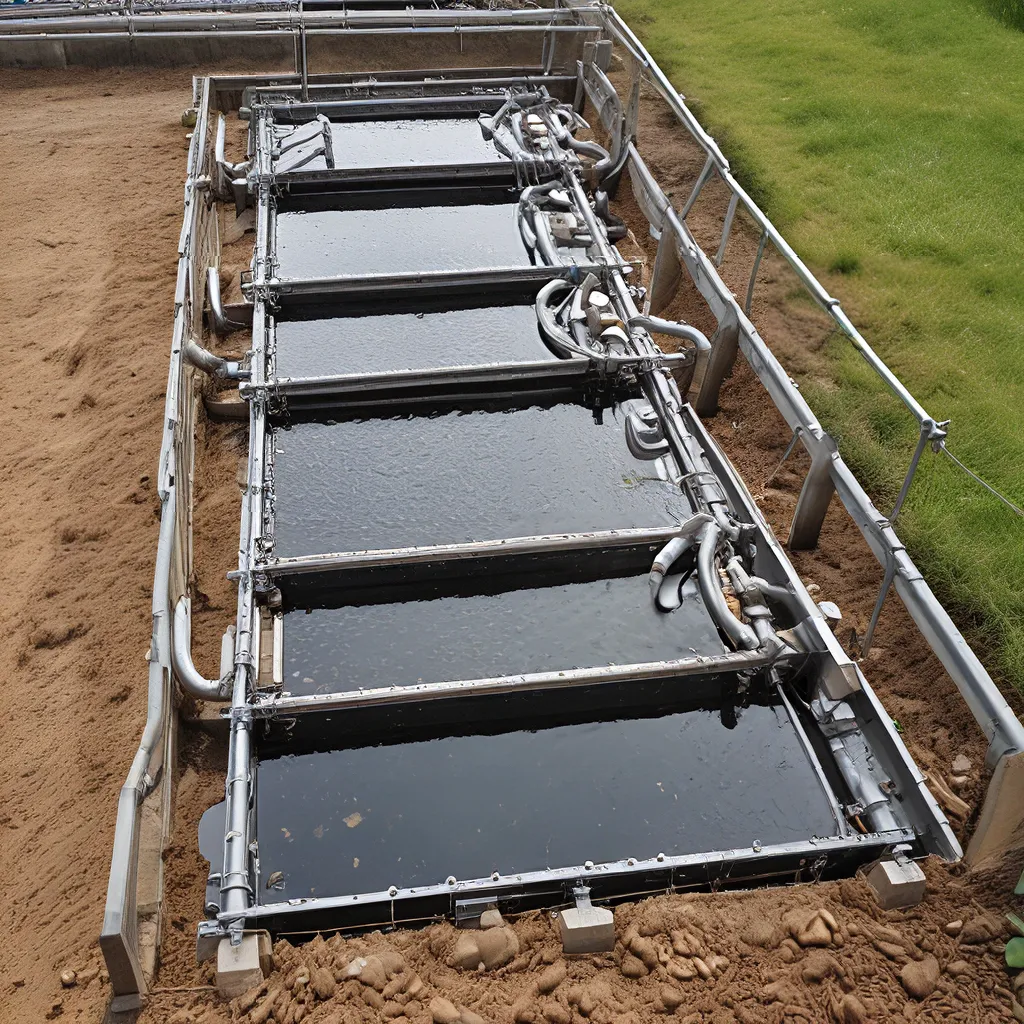
As an environmental enthusiast, I’ve always been fascinated by the innovative technologies that are transforming the way we manage our natural resources. One such innovation that has caught my eye is the microbial fuel cell (MFC)—a remarkable device that harnesses the power of microorganisms to convert wastewater into clean, renewable energy.
The Promise of Wastewater-to-Energy Conversion
In our rapidly urbanizing world, the management of wastewater has become a pressing challenge. Conventional wastewater treatment plants often rely on energy-intensive processes that consume significant resources and contribute to our carbon footprint. But what if we could turn this challenge into an opportunity?
This is where the genius of microbial fuel cells comes into play. These ingenious devices use the natural metabolic processes of microorganisms to generate electrical current from the organic matter present in wastewater. It’s like harnessing the power of nature’s own battery-powered minions to tackle our waste management challenges.
How Microbial Fuel Cells Work
The basic principle behind MFCs is simple: microorganisms, such as bacteria, are able to oxidize organic compounds and transfer the resulting electrons to an electrode, creating an electrical current. This process occurs in a specially designed MFC, which typically consists of an anode and a cathode separated by a proton exchange membrane.
As wastewater flows through the anode chamber, the microorganisms feast on the organic matter, releasing electrons in the process. These electrons are then captured by the anode, creating a flow of electrical current that can be harnessed to power various applications. Meanwhile, the protons released during the microbial metabolism pass through the membrane to the cathode, where they combine with oxygen to form water.
Recent research has shown that MFCs can be highly efficient in converting organic waste into electricity, with some systems achieving power densities of up to 1.5 watts per square meter. This is a remarkable feat, considering that these devices are essentially powered by the waste they’re designed to treat.
The Environmental Benefits of MFCs
The potential environmental benefits of microbial fuel cells are truly astounding. By converting wastewater into a renewable energy source, these devices can significantly reduce the energy consumption and carbon emissions associated with traditional wastewater treatment processes.
According to the United States Environmental Protection Agency (EPA), the wastewater treatment industry accounts for approximately 3-4% of the total U.S. electricity consumption. By harnessing the power of MFCs, we could potentially offset a significant portion of this energy demand, ultimately contributing to a more sustainable and eco-friendly water management ecosystem.
But the benefits don’t stop there. MFCs can also play a crucial role in reducing the overall environmental impact of wastewater treatment. By breaking down organic compounds and removing pollutants, these devices can help improve the quality of water discharged into natural waterways, protecting aquatic ecosystems and preserving precious water resources.
Advancing the Development of Microbial Fuel Cells
As with any emerging technology, the development of microbial fuel cells is an ongoing process, with researchers and engineers continuously working to improve their efficiency, scalability, and practical applications.
Recent advancements in materials science, microbiology, and electrochemistry have led to significant improvements in MFC performance. For example, the use of advanced electrode materials and optimized reactor designs have helped to increase power densities and enhance the overall energy-conversion capabilities of these devices.
Moreover, there is a growing interest in integrating MFCs into comprehensive wastewater treatment systems, where they can work alongside traditional technologies to create a more efficient and sustainable water management infrastructure. This could involve using MFCs to generate on-site renewable energy, while also leveraging their pollutant-removal capabilities to improve the overall water quality.
As the research and development in this field continues, I’m confident that we’ll see even more exciting breakthroughs in the years to come. Who knows, maybe one day your own household or business could be powered by the very wastewater it produces, thanks to the magic of microbial fuel cells.
Exploring the Future of Wastewater-to-Energy Conversion
The potential of microbial fuel cells to transform the way we manage our wastewater is truly inspiring. By harnessing the power of nature’s own microbial communities, these innovative devices could help us tackle some of the most pressing environmental challenges of our time, all while generating clean, renewable energy.
As I delve deeper into this fascinating topic, I can’t help but wonder what other innovative solutions might be lurking in the depths of our wastewater streams. Perhaps one day, the very waste that we’ve long considered a burden could become our most valuable resource, powering our homes, businesses, and communities in ways we never thought possible.
Of course, the road ahead is not without its challenges. There are still technical hurdles to overcome, regulatory barriers to navigate, and public perceptions to shift. But as I explore the latest advancements and ongoing research in the field of microbial fuel cells, I’m filled with a sense of optimism and excitement for the future.
After all, if we can harness the power of nature’s smallest denizens to tackle our environmental woes, just imagine what other wonders might be waiting to be discovered. The future of wastewater-to-energy conversion is bright, and I can’t wait to see what the next chapter holds.
So, if you’re as intrigued by this technology as I am, I encourage you to explore the services offered by Alpha Wastewater. They’re at the forefront of innovative wastewater management solutions, and I’m confident they can help you harness the power of microbial fuel cells to transform your own waste into a valuable resource.